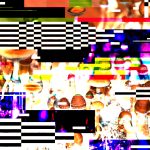What happens when you combine two of the most groundbreaking innovations in mental health care: artificial intelligence (AI) and psychedelic medicines? While the full impact of AI in healthcare is still unfolding, a new white paper suggests that AI is already making significant strides in psychedelic medicine, potentially revolutionizing mental health treatments.
A paper recently published in the Annals of the New York Academy of Sciences, authored by neuroscientists from Psychae Therapeutics, a Melbourne-based pharmaceutical company, sheds light on this exciting intersection. The researchers, who are exploring psychedelics as a new generation of psychiatric medications, highlight the promising possibilities that emerge when AI and psychedelic science converge. Here’s a breakdown of the report.
AI Is Accelerating Drug Discovery
One of the most promising areas where psychedelics and AI intersect is drug discovery and development. AI can rapidly analyze thousands of potential medicinal molecules, predicting their effects on the body and assessing their safety and efficacy. This capability could lead to the creation of new medicines that offer the benefits of psychedelics with fewer drawbacks.
This concept is not science fiction, either; pharmaceutical scientists have already deployed AI to discover new drugs. In theory, AI-assisted drug discovery could increase the number of potential drugs by millions compared to our current inventory.
A recent example of this approach occurred earlier this year when researchers at the University of California-San Francisco used the AI program AlphaFold to identify “hundreds of thousands” of new psychedelic compounds. These newly discovered molecules have the potential to treat disorders such as depression.
AI Is Hyper-Optimizing Clinical Data
AI is also helping to make clinical trials for psychedelic treatments more efficient and effective. By analyzing patient data, AI can suggest the best dosing strategies for individuals and even predict who may benefit most from these treatments. Currently, doctors already do this in some limited capacity with genetic screening. AI could also monitor patients during trials using wearable technology, providing real-time insights into how the treatments are working.
Understanding the psychedelic experience is crucial for developing effective therapies. AI can help by analyzing the emotions and experiences of people undergoing psychedelic treatment. By processing large amounts of data from therapy sessions, AI can uncover patterns and insights that might be missed by human observers, as well.
AI Is Even Reshaping the Psychedelic Experience
Though Psychae Therapeutics’ paper did not touch on virtual reality, recent developments indicate VR could play a key role here, too. AI could also potentially enhance the psychedelic experience itself, by using visual algorithms to stimulate or boost what’s already there. This could involve using virtual reality or personalized sensory inputs to create more tailored and potentially more effective treatment environments.
AI Is Changing Post-Treatment Integration
After treatment, AI can play a vital role in helping patients integrate their psychedelic experiences into daily life. AI-powered tools could provide personalized strategies for maintaining mental health improvements and monitor patients’ progress over time.
AI Is Even Impacting Ethics in Psychedelics
Finally, as with any powerful technology, there are important ethical and security considerations to keep in mind. Ironically, AI could aid human medical ethicists as they develop new policies. If that sounds absolutely bonkers, consider this study, which showed humans generally consider AI answers as more ethical than human responses. Additionally, as AI becomes more involved in psychedelic medicine, it’s crucial to ensure that patient data is protected and that the use of AI in this sensitive area is guided by strong ethical principles – something that has, so far, been lacking in the AI industry.
DoubleBlind is a trusted resource for news, evidence-based education, and reporting on psychedelics. We work with leading medical professionals, scientific researchers, journalists, mycologists, indigenous stewards, and cultural pioneers. Read about our editorial policy and fact-checking process here.
DoubleBlind Magazine does not encourage or condone any illegal activities, including but not limited to the use of illegal substances. We do not provide mental health, clinical, or medical services. We are not a substitute for medical, psychological, or psychiatric diagnosis, treatment, or advice. If you are in a crisis or if you or any other person may be in danger or experiencing a mental health emergency, immediately call 911 or your local emergency resources. If you are considering suicide, please call 988 to connect with the National Suicide Prevention Lifeline.
DoubleBlind Mag Read More



